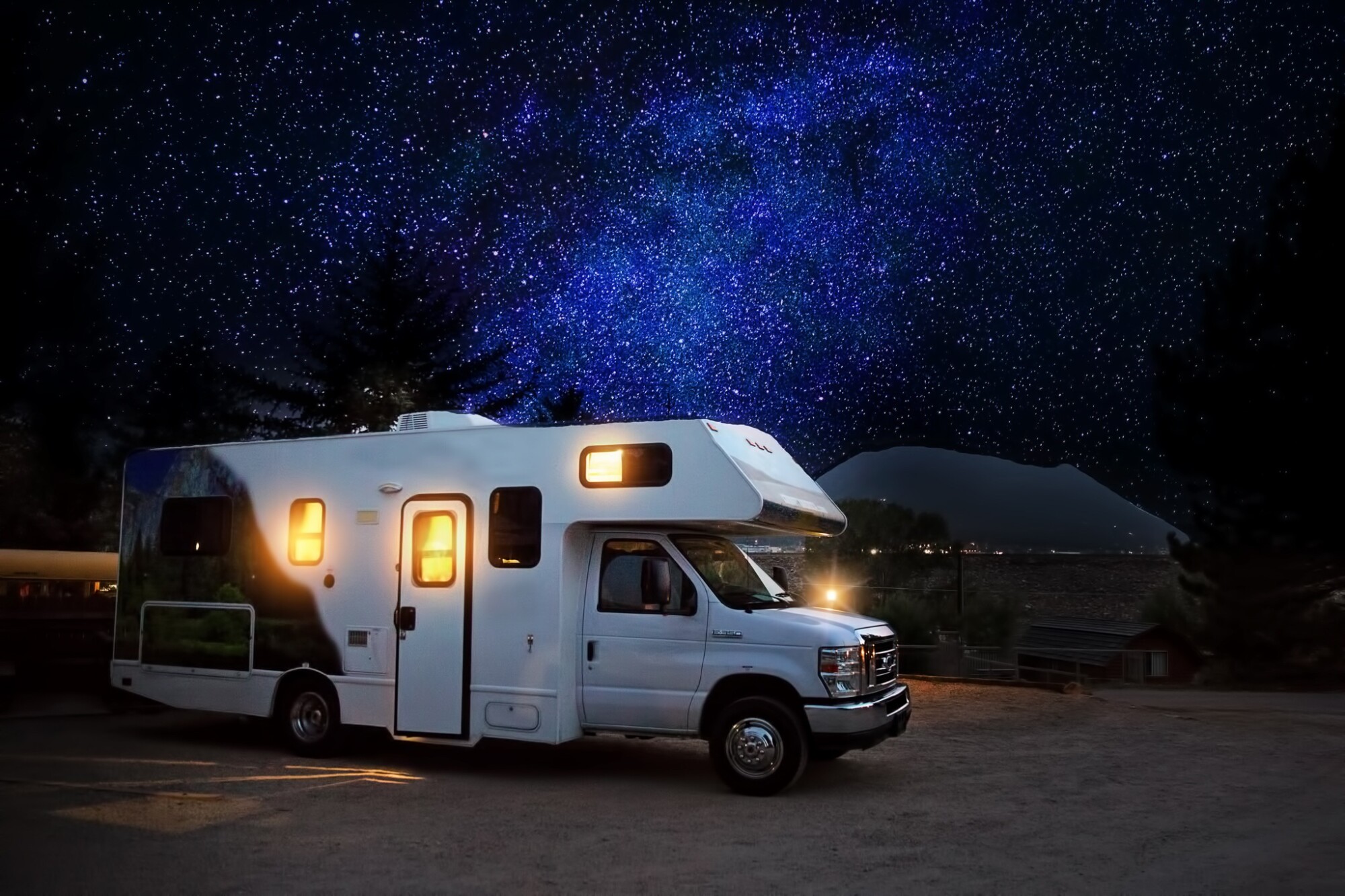We all love traveling. And if you have an RV, you can live on the road. You’ll never have to pay for a roadside motel again (campsite fees are much cheaper).
You can go wherever you want, as often as your job and family allow. And while that’s awesome, RV life isn’t quite that simple. You need to think through the less glamourous details like storage, the best RV size for you, and what your current vehicle can tow.
We’re going over those details below so that you’re ready to hit the RV lot ASAP!
The Type of RV: Towing vs Driving
While you could get technical and say that an RV that you tow behind a car is a pop-up or a camper, they’re both sold at RV dealers, so we’re using RV as an umbrella term.
To Tow or Not?
If you have a small family, don’t plan on going out too often, and prefer stationing at official campsites, then you may want an RV or camper you can tow.
These types are also cheaper and easier to store (because they’re smaller). However, you will need to figure out what your vehicle can pull. Each car has a towing capacity, which is rated in weight.
Most trucks and SUVs can pull a camper or a popup, but it’s worth checking. Google the make, model, and year of your car followed by “towing capacity” to find out what your car can handle.
Or, if you head to an RV lot or site like lamesarv.com, the professionals there can answer your questions for you.
Non-Towing Options
Buying an RV that drives is a great choice for those willing to spend a long amount of time on the road and who want to be able to tote their own water and sewage (up to a certain point).
However, these are more expensive or cumbersome to store when you’re not using them, and they get terrible gas mileage, compared to a traditional car.
RV Storage
Where are you going to put your RV when you’re not using it? Do you have a spot where you can drive/tow it into your backyard? If you plan to park it in your driveway, check your HOA rules – some won’t allow it.
And if you can’t store it at home, you’ll likely have to pay to store it at a lot (covered or uncovered). Keep that in mind when you’re calculating your budget.
Choosing the Best RV for You
When it comes to shopping for RVs, you need to keep the above points in mind — along with your budget. Walking into the sales lot knowing your stuff will give you a much better experience when choosing the best RV for you.
Don’t commit to anything before you’ve run all the numbers (twice!) and checked prices at competing businesses.
We hope you found this guide helpful. For more articles about everything on wheels, bookmark our blog!

